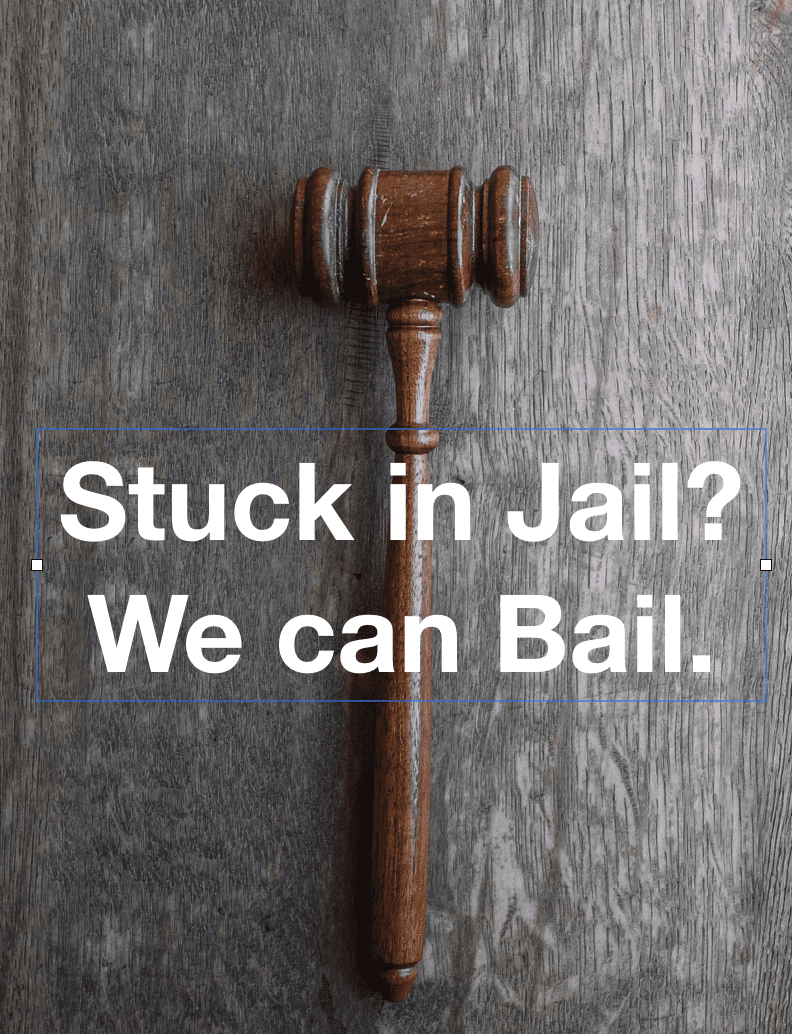Getting arrested is a terrifying experience. Not knowing what to do next only makes it worse. Bail bond loans are, literally, a way out.
A series of bad decisions leading you into trouble and your judgement getting clouded is fate deciding to force its way to settle an old score. What a tragedy. You look around, and there’s no one coming for help. Getting arrested and not knowing what to do next falls in the same category of incidents. What are the first few questions that come to the person’s mind on getting arrested? How would I pay the bail in the case of lack of resources? Can I hire a bondsman? How do bail bond loans work? Your immediate focus should be on getting out and gaining control of life.
1. What are Bail Bonds, Why You Should Consider Them the Best Option
Bail bonds offer a release clause to a person who got arrested in return for attending court sessions for the time the case is open. Bail bonds protect the rights of the defendant and the prestige of the court. It would be incorrect to put forth that the amount the defendant is asked to pay is some sort of punishment. It doesn’t either make them guilty or looks suspicious in the eyes of the public. What’s the point of keeping them in custody when the verdict is anything but decided?
How the bail system offers a fair trial and restores normalcy
Bail system ensures the proper functioning of the legal system and society. Defendants don’t have to fill the jails while the cases are at the initial stages and second, entrust the defendants with the responsibility to make an appearance to the court whenever required.
“Someone looking at bail bonds for the first time should keep the legal aspect and its implications in mind. The responsibilities have just got a lot heavier. You’re free now, and there’s a lot more that you pay apart from the bond amount. Your credibility and probably your family’s hope and future is dependent on it”.
The arrestee awaits a set of possibilities to take place next: You can get released, released on bail, or kept in custody until the verdict is out.
The first step the police follow after arresting you is “Bookings”. They could release you without filling the charges. That’s one option. What if they file the charges? At this point, the bail system comes into the picture. The police can release you after securing the bail bonds.
We need to look at all the possible scenarios and maintain an understanding of things.
a) In the first case, the bookings follow a specific procedure. They keep the arrestee at a detaining area. The process involves taking photographs, recording personal information such as date of birth, fingerprints, etc.
b) The arrest, followed by a booking, usually involves a couple of options for the defendants. 1) The police release the defendant on a written agreement to attend the court. 2) The defendant needs to manage the bail amount before the police issues the release statement. 3) The defendant would stay in custody for the court to have the bail hearing first.
The nature of criminal activities decides the fate of the defendant whether a written note is enough or bail hearing needs to take place first.
The decision on the bail amount rests with the judiciary. States have the final decision on the bail amount in each case. The police have no role in deciding the bail. The police follow the orders to ask the defendants to walk without bail, apply for bail or wait for the bail hearing. The judges, on the other hand, can make significant changes to the bail amount taking the case-specific details into account.
2. Bail Hearing: What to Know about the Amount, Bail and Bail Denial
What are the factors that decide the bail amount, acceptance or rejection of bail? A defendant, at some point, realizes the grave consequences of his actions would weigh in the judgement against him.

The arrestee could hope the bail request is accepted and with the minimum bail amount. There’s nothing more she could ask considering the actions she has committed earlier.
The judge has a moral and civic responsibility, apart from the faith entrusted in him or her by the Constitution, to consider several factors for the betterment of society and subject.
- Some defendants pose a threat given the kind of charges pressed. Defendants who have committed violent crimes or expecting a longer-term in jail would have a higher bail amount to pay. There are chances they would attempt to flee to avoid the sentence.
- The court considers a head of a family with the responsibility of one or two members on his shoulders a candidate who would honor its word. The bail amount is relatively lesser. The judge considers the defendant’s role as a citizen. Her business and family have strong roots in the community. The judge would prefer setting the right example for society to clean the system.
- The past comes to haunt. It’s not in the case of Karma alone. Those who’ve got a history of missing court appearances should prepare themselves to pay for past mistakes. There are chances that the court may deny them the bail to make them pay for past mistakes. First-time defendants have leverage on their side.
The courts put public safety and health at the top of the priority list. They don’t even think about the bail in the cases involving defendants considered a threat to others. They prefer denying the bail and waiting for the case to begin and take its course.
Granting the bail and sending the defendant back to society, courts also need to take some cautionary measures to avoid any unpleasant incidents. They need to ensure the defendant doesn’t cause any harm or disturb the fabric of social peace, harmony. The court reserves the right to take the defendant back into custody if he or she violates the terms. The amount of money paid as bail is another loss to bear.
Let’s take a look at the conditions:
- The arrestee needs to stay away from the victim in stalking, domestic violence cases. The threats made to the victim makes it mandatory for the defendant to make no-contact or risk everything otherwise.
- The court holds the right to put a travel restriction on the defendants. They need to get permission before making any travel plans outside the city or state.
- The judge could put firearms restriction on defendants keeping the sensitive nature of the case. They need to make some decisions which may seem a bit stretched, but they’ve to put the victim’s interest first.
All criminal matters are complicated, and bail bonds aren’t any exception. A defendant who has got problems to resolve requires an expert professional. The last thing they want is an inexperienced, greedy bondsman to fool them. There is much more at stake than money. Selecting the right mobile bail bonds agency should be the priority. You would have your mind focused on getting out of the situation. There’s no time for you to play smart or act dumb. You should have the right person standing beside you, guiding you on getting out through bail bond loans. You can acquire the services of a top agency by paying an industry-standard fee. You need to work together as a team to save on time, peace of mind.


Join the conversation!